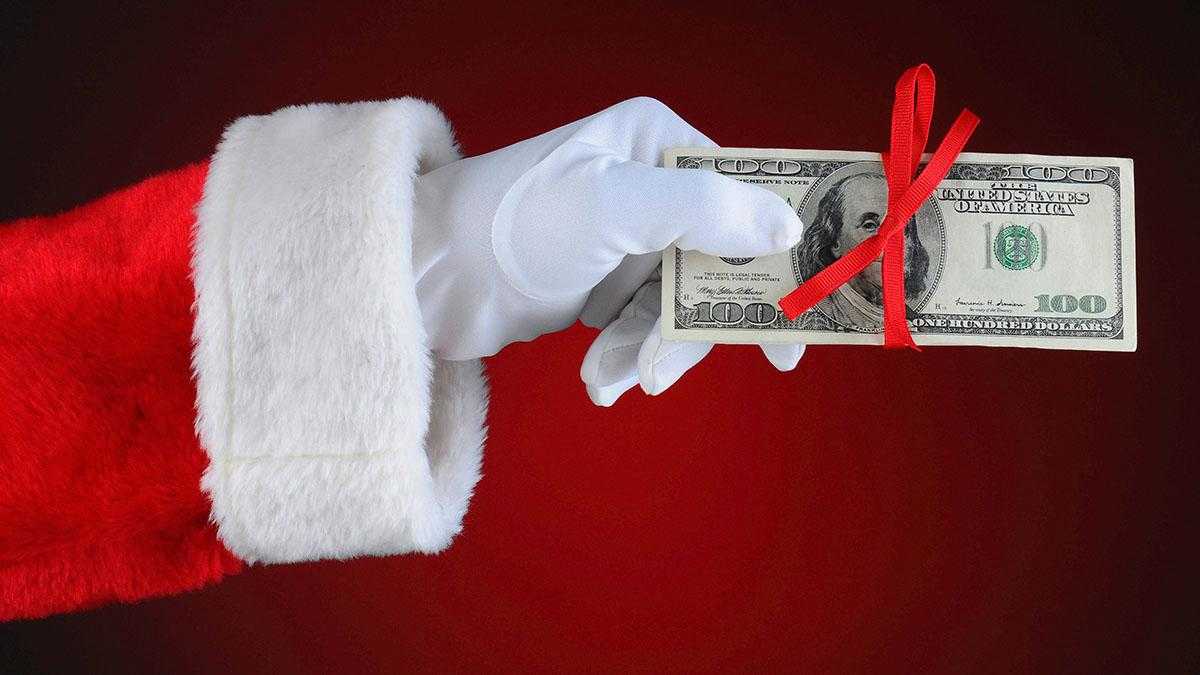A Santa Claus rally is a history financial trend that explains increases in the stock market that occur in the last week of December through to the first two trading days in January. Since 1969 the Santa Claus rally has yielded a positive return in 34 of the past 44 holiday seasons with the average cumulative return over these days is 1.6%. On average, the returns are positive in each of the nine days of the rally with at least one day of declines. Furthermore, alternative research over a longer period confirms the persistence of these trends. The historical data going back to 1896 showed the Dow Jones Industrial Average has gained an average of 1.7% during this seven-day trading period, rising 77% of the time.

What are the reasons for the rally?
There are numerous possible explanations for the causes of a Santa Claus rally.
One is the tax considerations. The USA has gone through some of the most radical tax reforms not only in the generation but ever. In summary, it allowed American corporations to have lower tax rates and offset more. In relation to the rally, one theory is that tax returns at the end of the calendar year have been made and private investors may get a rebate from various other tax exemptions and choose to invest in the markets.
For the more sophisticated and experienced investor, it could be year-end tax-related portfolio adjustments. Possibly linked is private investors and corporations invest in order to reduce their tax obligations as part of their sophisticated tax accounts.
On from this, some put forward the theory that it’s down to more subjective feeling of optimism and happiness on Wall Street and high earners investing their holiday bonuses. Another theory is that some very large institutional investors a number of whom are more sophisticated and pessimistic (especially this year), tend to take holiday, therefore, leaving the market in the hands of retail investors, who tend to be more bullish. Most retail investors are short sellers so professional traders who would and have the capability to short sell are away and therefore close their positions before leaving the office.
One of the most popular theories for the Santa Claus rally is a result of people buying stocks in anticipation of the rise in stock prices during the month of January (“The January Effect”). In America especially, Thanksgiving is a chance for people to cash in their profits, close their positions or rework their portfolios ready for the new year. However, to try and be clever and miss the January effect, it is hypothesised that investors try to get in a week early and take their positions hence the traditional Santa rally.
The bad news is of 2017, the markets have fallen 2 out of the last 3 years. Moreover, if there is no rally – which is looking increasingly likely, that can be a sign of a bear market in the future. In the final weeks of 1999 and 2007, stock prices rose rapidly but only to be followed by bear markets. A better strategy is to maintain a long-term investment strategy and not be tempted by the promise of Santa Claus rallies or January effects or hold cash and sit and wait on the sidelines. Always do your own research.
This year, time for cheer?
It has been reported that December has been the worst for financial markets since the great depression of the 1930s. The last 3 months have seen a cooling of over 20% officially placing it in a bear market territory. On Christmas Eve, the market plunged by 500 points as US Treasury Secretary Steven Mnuchin made calls to the heads of the country’s six largest banks, in an unusual move aimed at reassuring investors after big falls in global and especially US stocks. This was after the worst stock market fall in a decade sparking the interaction and it was just the mere act of reaching out to the banks that scared the market considerably.
An interest rate rise and US-China trade tensions didn’t help either. Its important to add, Mr Mnuchin said banks confirmed they had “Ample liquidity available for lending to consumer, business markets and all other market operations,” He also confirmed that “they have not experienced any clearance or margin issues, and that the markets continue to function properly,” After the nightmare of Christmas eve it seemed a rally was the last thing to happen but at the time of writing, markets have bounced back by a 500 points to continue the bipolar trend of December and in the process, fuelling some optimism and potential for a 2018 Santa rally. More soon.